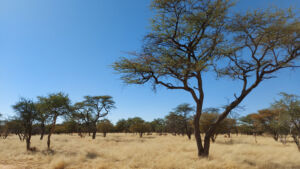The role of plant characteristics in environmental conflicts
Markus Rauchecker
The research project investigates the dynamics of land use changes and their effects on ecosystem services and biodiversity.
Ecosystems are frequently subject to strong (local) utilization pressure for instance due to intensive agriculture. At the same time, ecosystems are influenced by global processes like climate change. The question arises, how conflicts that are based on different demands on the ecosystem services can be avoided or reduced. This research project investigates the dynamics of land use changes and their impacts on ecosystem services and biodiversity.
In order to analyze processes that are taking place on different scales of space and time as well as their causes, dynamics and effects, the project team uses integrated modelling methods. Based on a social-ecological system understanding, social and natural scientific findings will be brought together and analyzed. For this integrated approach the concept of ecosystem services is of particular importance. These services accrue from ecosystem functions like for instance the provision of food and are made useable by human activities. Dynamics of land use and resource management are a visible sign of human action in the landscape and together with ecosystem services form the conceptual framework of LIMO.
Besides important supply services (like food and water) other ecosystem services (for example aesthetics, regeneration and leisure functions) will be taken into consideration during the course of the research work. There is a broad range of possibilities within which these ecosystem services can be used by humans and which is often the cause of conflicts between different claims for utilization. The conflicts may be about impairments (but also favors) of relevant ecosystem functions as well as nature conservation and species protection. While economic interests and job creation may favor the extraction of natural resource, residents and tourists might prefer clean water, ecologically friendly agriculture and opportunities for local recreation. These various kinds of utilization can impair or support different ecological processes like the mobility of wildlife, seed dispersal and reproduction.
With a view to methods, the project team will continue to develop and combine different model approaches that are able to integrate data of different disciplinary origin, formats and scale levels. Examples are Bayesian Belief Networks as well as Agent-Based Models and System Dynamics Models. This integrated approach is aiming to contribute to a better understanding of social-ecological systems with the aim to form a basis for developing feasible and effective action and management strategies.
The research project LIMO is part of the cooperation with the Senckenberg Biodiversity and Climate Research Centre (SBiK-F). Within SBiK-F interdependencies between shifts in biodiversity and climate change are being investigated. ISOE is a founding partner of the research centre and coordinates the focal field of “Ecosystem Services and Climate”.
Markus Rauchecker
Katja Brinkmann et al.
Lukas Drees, Robert Lütkemeier, Heide Kerber
James Ellison et al.
Robert Lütkemeier, Meed Mbidzo, Stefan Liehr
What is increasing the pressure on land resources? How can a fair and sustainable use of land resources be achieved?
Go to Topic Page

